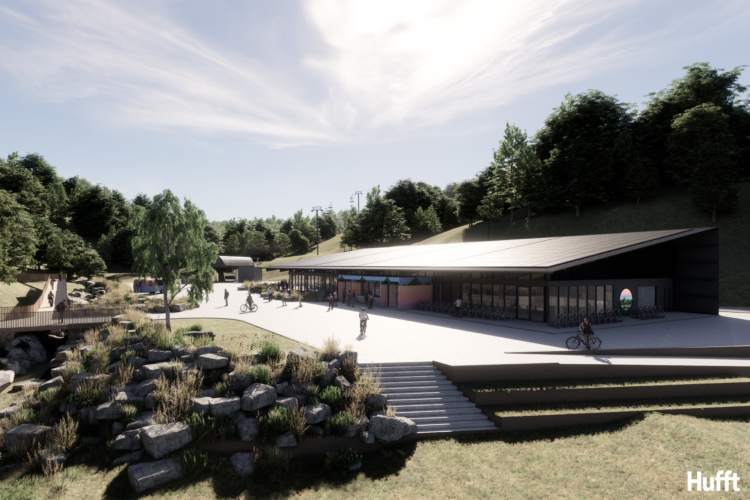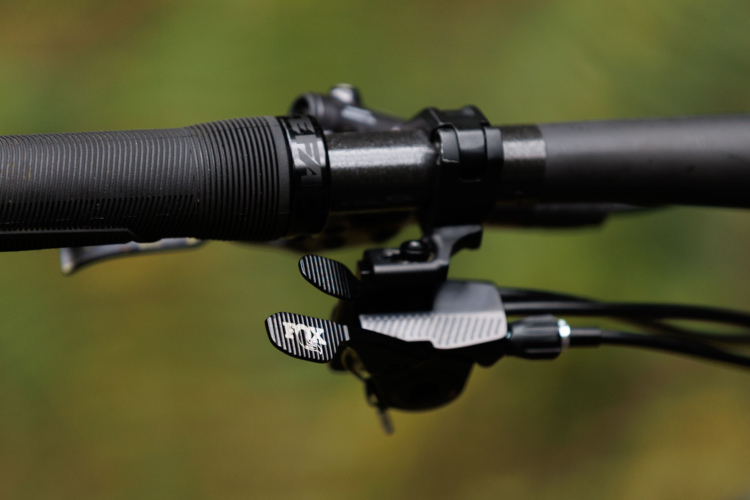
It’s not always easy deciding what to eat before a big ride. Last summer, I completed a 20-mile ride, well, 19.8, according to Strava, in just over two hours. I could have easily gone another 10 miles if I had more time. I’m not a distance rider, so this would be my longest ride to date. I felt great.
Fast forward a few weeks later, and I attempted another long ride. These were new trails to me, adding about seven more miles. Having completed my previous longest ride, I felt confident going into this loop. How wrong I was.
One of the trails I was on saw more horse than mountain bike traffic. I spent nearly ten miles pedaling from one sand pit to another.
When I reached the point of feeling like I didn’t know how much further I could pedal, Trailforks let me know that I had over eight miles left before I reached my vehicle. And this eight miles was mainly uphill.
The trail beat me up badly. My previous long ride consisted of packed, mostly blue trails. The amount of sand and loose rock in the trail, presumably from the horses, took a more significant toll on me than I thought it would.
Luckily, I took it easy and made it out. My wife expected me back after four hours; I rolled into the driveway more than eight hours later.
Besides being unfamiliar with the trails and the conditions, my fuel intake, or lack thereof, hurt me significantly. This, paired with dehydration, put me in a scary situation.
As you can probably imagine, I’m unwilling to let that happen again. So, I can either swear off the longer rides or figure out how to better fuel for them. I’ll lean toward the latter.
To learn more about fueling ourselves for long adventures, Singletracks asked nutritionist and cycling coach Dr. Namrita Brooke what to eat before a big ride and how to stay fueled during the adventure.
How Dr. Brooke got started
Brooke found herself working in the tech industry as a software consultant before studying nutrition. Getting involved in adventure racing in her spare time led to an obsession with mountain biking, specifically endurance riding.
“As I was going down that training, traveling, and racing journey, I wanted to align my career with something I was more passionate about,” said Brooke. “I completely changed my career, went back to school, and studied nutrition.”
In 2009, Brooke received a graduate degree in sports nutrition from Georgia State University. She finished her doctorate, a PhD in applied exercise physiology, in 2015.
Brooke coaches mountain biking, cyclocross, track, and road cycling. She not only offers coaching and nutrition services to her own athletes but also serves as a nutrition consultant and coach/mentor for other programs and organizations.
While the lion’s share of Brooke’s clientele is mountain bikers, she caters to all endurance athletes, including triathletes and runners.

Focus on the carbohydrates
So, what must we put into our bodies to prepare for a big ride? The simple answer: carbohydrates.
“You primarily want a bunch of easily digestible carbs in your system,” said Brooke. “That’s your energy source.”
Brooke explained that we will use fats for energy along with carbohydrates, but we already have enough fats in our bodies. Our focus should be on the carbs.
Whenever there is talk about changing nutrition, replacing this with that, or “easily digestible carbs,” it can almost seem overwhelming, as if we need to replace our pantries with different food. Luckily, this isn’t the case.
The “easily digestible carbs” Brooke is talking about are likely food items you already have: Bagels, bread, oatmeal, waffles, pancakes, and cereals.
“They can be whole grain, they can have some fiber, a little bit of protein, but usually most people have an okay time digesting those things.”
But what constitutes a big breakfast? Carbs are easy for most of us to come by, but how much should we eat before that big ride? Brooke gave us an easy breakdown: 3 to 4 grams of carbs per kilogram of your body weight.
I am right under 84 kilograms. That means I should take at least 252 grams of carbs at breakfast for a big ride. It is essential to work out and know these numbers. 252 grams of carbs may be a reasonable breakfast for, say, oatmeal, but, depending on what type of bread you buy, it could be an ungodly amount of toast alongside your eggs.
“If you try to get that with sprouted grain bread, you’re going to feel full fast and have a bad experience on your ride,” Brooke said. She encourages clients to look for other food to add.
If your cup of oatmeal is only getting you a third of the way regarding your carb intake, add maple syrup, a bit of your favorite nut butter, or some fruit. Grains often come to mind when we think of carbs, but it doesn’t have to be the entirety of our carbohydrate intake.
And since the emphasis here is on carbohydrates, vegans and vegetarians can easily incorporate this into their nutrition practices.
When to eat before your ride
Having a big breakfast isn’t a difficult thing for me. I can easily put down a couple of bowls of oatmeal and hit the trails. But, as Brooke points out, we must allow our bodies time to process the fuel we just put in.
“The first thing is knowing how much time you have between eating and your ride,” Brooke said. “If you have the time, like three or four hours ahead of your ride for a big breakfast, that is ideal.”
While three or four hours seems like a long time to wait between eating and a ride, we need to remember that this is for a big ride. Yes, “big ride” is a relative term. Twenty-eight miles may be a regular Saturday for you. For me, it is my longest ride.
If distance is too relative, let’s use time as the measurement. Brooke recommended we focus on how many hours we spend on the ride. Riding consistently (not bike park or “session-ing”) for more than three hours qualifies as a “big ride.”
Brooke stressed that while this gap between a big breakfast and your ride is the best option, it is only if you have time. If you only have an hour or so before a big ride, eat as many carbs as it might seem reasonable, but know that your body will likely not have enough time to fully process and digest the food.
If the big meal did work out, and it is now three hours later, and you are climbing on your bike, you may want to refuel with some quick carbs.
“Say it has been a couple of hours since you’ve eaten breakfast, and you have a big climb right from the parking lot. That can drain you.” Brooke explained that this is an excellent time for a bar, gel, or sports drink.
Skip fats and protein
While tempting, a big spoonful of peanut butter before a big climb is not a great idea. We often think something like that will give us a big energy boost. The problem is that something like peanut butter, has much more protein and fats than carbs which tends to slow you down and make us feel sluggish.
Brooke can’t stress enough that our energy source should come from carbs before a big ride. Having some protein with breakfast is okay, just don’t go overboard. She didn’t suggest staying under a certain amount of protein before a long ride, but every gram of protein we eat might be a gram of carbs we don’t. The focus is on carbs since protein is harder for us to digest and doesn’t act as fuel.
“For big rides, people try to go high fat, lower carb because they think that is sustained energy,” she said. “But it is actually thinking about it backward.”
Brooke pointed out that a long ride will require sustained energy pulled from fat, but the burst of energy we need to make it up climbs or over technical sections is most important. Those energy bursts are carbohydrate energy.
“Regardless of the type of carbohydrate, it is going to be utilized as glucose,” she said. “Even if you’re eating complex carbs, all those molecules will be broken down to produce energy in the muscle. For more sustained energy, you want more complex carbs.”
In the end, carbs are being turned into glucose and used as energy in our bodies. Complex carbs will give longer-lasting energy than the simple carbs.

When to eat again
Well, this depends on the length of your ride. Brooke feels that this big breakfast should suffice if your ride is two hours or less. If you go longer, definitely bring something to refuel with.
“If you’re going for longer than two hours, I would say try to get 30 grams of carbs every hour,” said Brooke. She did mention, however, this depends on what type of ride you’re doing. An easier endurance ride is probably okay with 30 grams of carbs every hour. Racing or fast-paced group rides will need even more.
And, as you may have guessed, incorporating this type of nutritional planning into your life is a lifestyle change. If you spend the majority of your week eating a high-fat and sugary diet, a big bowl of oatmeal with some peanut butter and maple syrup four hours before your ride may not give you the effect you’re looking for.
Brooke recommends incorporating well-balanced, healthy eating habits to feel the effects of a big carbohydrate breakfast before a ride.
Breakfast recommendations before a big ride
- Try to get 3-4g of carbs per kg of body weight for rides more than 3 hours
- Lean heavily on carbohydrates and stay light on the fats and protein
- Complex carbohydrates and grains will give you more sustained energy than simple carbs
- Give yourself enough time (2-4 hours) before the ride to digest
- Try to take in quick carbs, like a gel, right before your ride, then 30g of carbs per hour during the ride


















1 Comments
Oct 12, 2023
Personally I eat fat, protein and very few carbs and never have an issue.
My problem is once I start eating carbs I need them every 30 minutes to keep fueled.
Proteins and fats may last 60-90 minutes.
Try it for yourself on your next long (er) ride.
That’s what I did and it was a very noticeable difference.
Works for me!